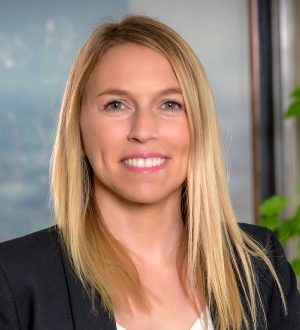The Louisiana Third Circuit Court of Appeal recently upheld awards for supplemental earning benefits in three workers’ compensation claims where claimants alleged occupational noise-induced hearing loss resulting from their employment at a paper mill owned by Packaging Corporation of America (“PCA”) and its predecessors[1].
The cases involved former employees of PCA who had retired for reasons unrelated to hearing loss but filed disputed claims for compensation years later seeking indemnity and medical benefits. All three claimants had been evaluated by Dr. Brad LeBert, who opined that they had occupationally related hearing loss and restricted their work to within National Institute for Occupational Safety and Health (“NIOSH”) compliant environments.
WORKERS’ COMPENSATION JUDGE’S DECISION
Following a combined trial on the merits of all three claims, the Workers’ Compensation Judge found that the claimants had proven by a preponderance of the evidence that they had suffered occupationally related noise-induced hearing loss, that they had work restrictions, and that they were unable to earn at least 90% of their pre-injury wages. Judgments were rendered in favor of the claimants for medical benefits and 104 weeks of supplemental earning benefits under La. R.S. 23:1221(3)(d)(iii).
PCA appealed on several grounds, including that the claimants failed to show that their work-related injuries resulted in a loss of wage-earning capacity given that they had withdrawn from the workforce for reasons unrelated to hearing loss or noise-related work restrictions. They also argued that Dr. LeBert’s NIOSH restrictions were universal and not specific to individuals with hearing loss.
THIRD CIRCUIT COURT DENIES APPEAL
The Louisiana Third Circuit Court of Appeal denied PCA’s appeal, relying heavily on their previous ruling in Smith v. Packaging Corp. of Am.[2]. Referencing Smith, the Court held that a claimant’s supplemental earning benefit claim is complete only after they have been diagnosed with an occupational disease, found disabled, and given work restrictions. At that point a claimant’s retirement becomes one directly affected by their disability, and they were properly treated as a person who left work due to an occupational disease.
Furthermore, the claimants were more than laborers subject to the generalized application of NIOSH noise restrictions, as the application of the restrictions to these particular claimants would prevent further hearing damage.
Finally, the Third Circuit held that the claimants had met their burden of proof that the NIOSH restrictions imposed by Dr. LeBert prevented them from performing their jobs during their period of entitlement to supplemental earning benefits. As in Smith, the Court found that the claimants had established their prima facie burden of proof based on testimony from PCA’s former safety manager that there were no positions at the paper mill that would satisfy Dr. LeBert’s restriction and the claimants’ testimonies that they were unlikely to find another job paying 90% of their pre-injury wages due to lack of education, training, or experience. At that point, the burden of proof shifted to PCA to prove the existence of a suitable, available job that complied with Dr. LeBert’s restrictions, and that PCA had failed to satisfy their burden.
____________
[1] Bos v. Packaging Corp. of Am., 357 So. 3d 919, 2023 La. App. LEXIS 215, 22-412 (La.App.3 Cir. 02/15/23)
[2] 354 So. 3d 132, 2022 La. App. LEXIS 2080, 22-171 (La.App.3 Cir. 11/30/22), 2022 WL 17331968
















